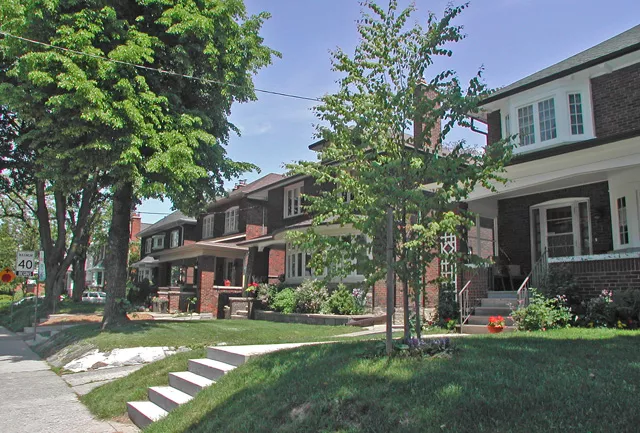An International Student’s Homestay Housing Experience: From Lagos to Toronto

I was a young teenage girl who had travelled overseas for the first time. I came to Canada when I was 17 years-old in the harsh winter in January 2013. I came to attend university at the University of Toronto because that was one of the few schools that resonated with many of the Nigerians back home and because my parents wanted only the best. We used an agent to help us apply to schools in Canada, and did not know much about the process. The agent told us that it was better to go to high school first and start from grade twelve before going into the university because attending high school would help me transition better into understanding the Canadian teaching system and curriculum. Hence I decided to apply to several high schools in Canada and eventually got accepted into Breamar Internal College, a school located right opposite UofT St. George campus.
I was introduced into the idea of a homestay (which is a period abroad spent in the home of a local family) for the first time when I came to Canada to complete my education. I lived with Marla, her husband Eustis and their only child Loren who was 9 years-old at that time (all pseudonyms). They lived on Runnymede street, a street in-between High Park which was a well-known family residential area where most white middle class families resided and Jane which a lot of Torontonians consider as “the ghetto” because that area is associated with criminal activities, drug trafficking, poor housing facilities, and is mostly Black. Runnymede was equally a predominantly white residential family neighborhood where mostly middle-class families resided. It consisted of town houses as well as many shops, churches and narrow roads.
The houses were really close to each other and it sort of reminded me of England and how the houses are so close to each other that judging from pictures and videos I have seen on social media and via friends who have visited. Though Marla told me the houses there cost millions of dollars, I was not quite impressed with the ornamentation of the houses, they looked dull. Another thing I did not really like about the neighborhood was the looks/stares people gave me when stepped out of the house. The stares made me feel uncomfortable, as if I did not belong, like I was meant to stop at Jane street and I missed the stop. Still, it was something I had to get used to because I experienced it every Sunday in the Catholic church I attended, as I was the only Black person in church and was also part of the choir.
In comparison to back home in Nigeria, the area where I lived was equally a residential family area but the houses were not as close to each other and the roads were wider. I lived in Lagos in an area called Okota-Isolo. Everything we really needed, from hospitals, hair salons to supermarkets, was within a good walking distance from our house. There was a mixture of middle-lower and lower class Black Nigerian families who lived in my area.


However, we lived in a gated community in the sense that we had gates that were locked every night at 12am and security guards who protected the gates from armed robbers. Many of the streets had gates but not every street had security guards protecting the gates because not every street had residents that were willing to donate monthly wages to pay the security guards. In spite of the gates and security guards set in place to protect our street, we still had occasional break-ins especially when the economy was doing very poorly. Not that the crime/robbery rates in Okota-Isolo were exceedingly high, we still needed those gates in place because they signified some kind of safety net and refuge for us the residents. One thing I liked about my area was that the houses were more urban in terms of structuring and décor. For instance, the way the houses were painted, sometimes brown and cream, or wine and cream or all white. Neighbors were friendly and we all knew ourselves, there was social cohesion and solidarity with all the families on my street.

My mum travelled back to Nigeria shortly after she dropped me off at Marla’s house and exchanged contact information with her. Their house was a two-story building which contained four bedrooms, three washrooms, a dining room, a living room and a basement. There were two rooms in the basement, I stayed in the first room which was the smallest, while my Japanese roommate June stayed in the second room which was more spacious than mine. My room was so small that a 6’5-foot person would not have been able to stand straight without bending over while walking into my room. Both of the rooms had no doors so we could literally walk into each other’s room unannounced and see each other get dressed as there was no form of privacy. We also shared one washroom which was in my room and so it was difficult for me to enjoy my naps without getting interrupted by her washroom breaks.

A few days after I moved in, Marla set out mandatory rules and regulations June and I were supposed to follow and if we refused, she made it clear to us that we would face immediate consequences. For instance, she told June and I that we were only permitted to two-minute showers and if we ever exceeded the time limit she would cut off the hot water supply. We were also not permitted to use the microwave because according to her it took up a lot of hydro which we were not paying for, so most times we had to eat our meals cold. Furthermore, she occasionally turned off the internet and told us to go to Starbucks or the local library if we wanted to use the internet to do our assignments because she did not want us to go over the data plan. Additionally, she told us that we were not allowed to do our own laundry but give them to Eustis who did everyone’s laundry every other week. Lastly, at night time when she had already turn on the alarm right before going to bed, June and I were not allowed to go upstairs to the kitchen to take anything including water because if we did we would trigger the alarm. Besides if the firetruck/ambulance came due to the triggered alarm she told us that we would have to pay them $200 because it was a false alarm.
I did not complain about the harsh restrictions because I did not want her to give negative feedback about me to the principal of the school, implying that I was being disobedient and giving her a hard time. This would ultimately get back to my parents, which I did not want. Yet, as time went on, doing assignments became difficult because the internet was perpetually turned off and Starbucks was always packed full with people so I could hardly concentrate.
As a result of the mistreatment I started feeling homesick and unhappy. I was unhappy more so because it was hard to make friends and talk about my experience while living with Marla. I was the only African and Black person in my school which was filled with Russian, Asian and Mexican kids. Many of the students did not really speak to me because they had their cliques that they related a lot more with or they had probably never seen a Black person before in the flesh. After six months, I later complained to my principal who was also my guardian about how Marla was mistreating me and that, as a result, I was not comfortable living with her any more. He agreed to make some calls and change my homestay. He also added that I should have come to him earlier when I started experiencing these issues because she was getting paid $750 out of my tuition per month which I was not even aware off. When I got back to the house that day, Marla had already started packing up my things because she had heard from the Principal that I was switching homestays and so she was furious. She threw my things into garbage bags and then out of the house screaming that if I wanted to leave, I had to leave that day regardless of how late it was that night. I did not have time to pack up my things so I put them all into garbage bags, quickly called for a taxi and left immediately. This is an illustration of power relations that exists between landlords and their tenants. That is, landlords like Marla take advantage of their tenants’ situation and exploit them regardless of it costing their tenants wellbeing. In my case, Marla exploited me based on the fact that I was a newcomer who was not aware of her rights as a tenant and capitalized on the fact that I would not know any better so it was easy for her to impose unreasonable rules and restrictions on me.
Nengimote Vanessa Young-dede studies Criminology and Sociology at the University of Toronto Mississauga. She is part of the Peel Poverty Action Group in Mississauga and she enjoys learning about different ethnic cultures.



